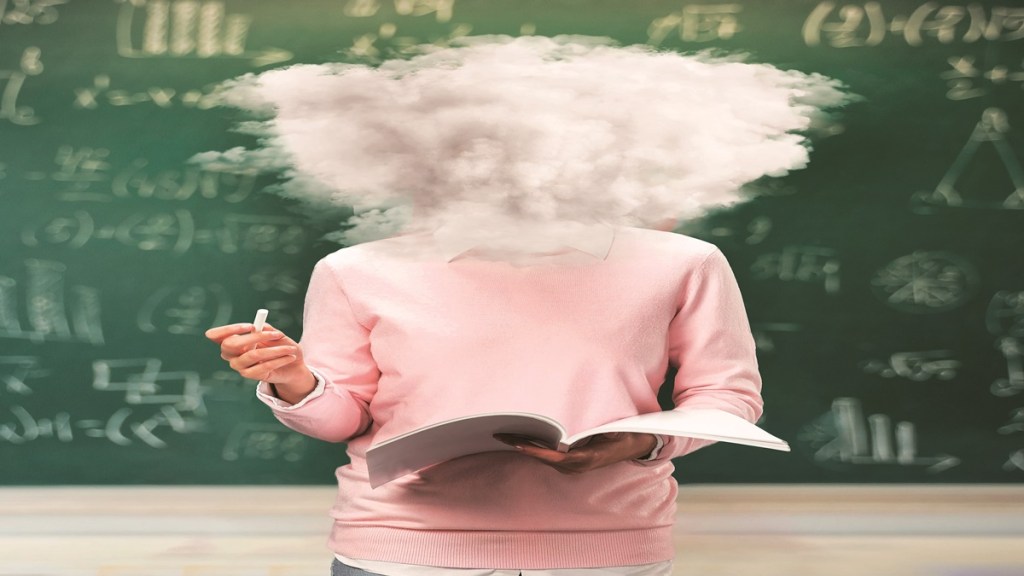Tanisha Dhingra, a counselling psychologist based in Haridwar, was barely 13 when she got singled out in class one day. A school counsellor, who had been observing her notebooks and had spoken to her teachers, told her parents that she should be taken to Delhi to get a psychological assessment.
Dhingra, now 25, says, “I remember crying a lot when this happened, because I couldn’t comprehend why I was being taken to a doctor or why I had to take psychiatric medication.”
Dhingra was diagnosed with dyslexia. But for the longest time, she found it difficult to understand, acknowledge, and accept her diagnosis.
Dyslexia, a neurobiological learning disability, is defined by the International Dyslexia Association as “difficulty with accurate and/or fluent word recognition and poor spelling and decoding abilities.” It goes on to add, “Secondary consequences may include problems in reading comprehension and reduced reading experience that can impede growth of vocabulary and background knowledge.”
According to a 2022 study published in the Indian Journal of Psychological Medicine, the prevalence of specific learning disabilities (SLDs) in India is estimated to be around 3-10%. The Dyslexia Association of India also says that “between 10% and 15% of Indian children are dyslexic.”
A struggle in itself
While dyslexia is a learning disability, it doesn’t just affect one’s academic life, the impact of the disability pervades a person’s socio-economic life and their relationships too.
Mimansa Singh Tanwar, a clinical psychologist at Gurugram’s Fortis Memorial Research Institute, tells FE, “Due to a lack of awareness, learning disabilities are often associated with only academic impairment, which is why their impact on other aspects of life often goes unnoticed or is not understood very well, even by people who’ve been diagnosed with them.”
However, for many, even getting diagnosed is a struggle in itself, like for N Sai Balaji, a 32-year-old teacher who had to quit his job because of his learning disability. Balaji was diagnosed with dyslexia and dysgraphia when he was 28, and was a PhD scholar at Delhi’s Jawaharlal Nehru University.
His diagnosis is a rarity, though. India doesn’t have any tests to diagnose people over the age of 18 with a learning disability. He tells FE, “There are tests designed in the UK, US, and Germany for an English speaking demographic that are used by some institutions in India to diagnose adults and adolescents with learning disabilities. I took a UK-based test where they gauged me on 18 parameters. An NGO helped me take the test pro-bono, otherwise it would have cost around Rs 20,000-Rs 35,000.”
Post his diagnosis, another challenge awaited Balaji. Because there’s no test for adults to get diagnosed with learning disabilities in India, they can’t get a certificate that allows them to avail accommodations under the Rights of Persons with Disabilities (RPwD) Act, 2016, that can help them get reservations in educational institutions or in employment.
So, Balaji has now been fighting a case in the Supreme Court to get a disability certificate. While his case was being heard in the apex court in April 2024, a media report had quoted senior officials of the social justice ministry as saying that a test was being designed by the National Institute for the Empowerment of Persons with Intellectual Disabilities (NIEPID) that would help diagnose SLDs in adults, and that the test should be ready to be rolled out by the Department of Empowerment of Persons with Disabilities by the end of the year.
Interestingly, though, K Vaishali, a 32-year-old Hyderabad-based author, activist, and winner of the 2024 Sahitya Akademi Yuva Puraskar, got diagnosed with dyslexia and dysgraphia when she was 20. Since she was still close in age to teenagers, she had to take the test designed for children and got a disability certificate as well.
Not a bed of roses
Vaishali tells FE, “I went through schooling with all the problems of dyslexia but without any awareness that this is what I was suffering from. I can’t spell words correctly. I can’t write very fast. I can’t tie my shoelaces. I had to repeat a whole year in school. I had to drop two courses in college before I found one that I could actually pursue.”
Life, for her and for others living with any learning disabilities, hasn’t been a bed of roses.
When Dhingra was first diagnosed with dyslexia, her school was very supportive of her needs. They asked her to write in four-line notebooks, while the rest of her classmates would work in single-rule notebooks. They gave her a separate room to sit in while taking exams, and she was given extra time as well. But while all this was supposed to help her, it made her feel different from her peers, which became an isolating experience for her.
But like Tanwar mentioned, learning disabilities impact more than just one’s academic acumen. A 2018 study published in The International Journal of Indian Psychology had linked learning disabilities with low self-esteem. This, Tanwar explains, could be rooted in the fact that in many cultures, how people view us socially is based on how competent we are. If others have a negative perception of you because you aren’t the most academically brilliant, it’ll impact how you see yourself as well, she explains.
Tanwar goes on to add, “This isn’t just in an academic setting, though. People view you similarly in workplaces as well. People with learning disabilities also struggle with confidence in all other aspects of their lives because they might have been teased, bullied, or judged while growing up.”
This could also be why people with learning disabilities battle with feelings of shame, guilt, and emotions in general — while also questioning their decision making skills often.
So amid this lack of institutional support, how does one get by? For Balaji, it was the compassion of the people around him that helped. His department and professors were accommodative enough to help him finish his PhD. And now, for work, he relies a lot on AI tools like ChatGPT to help him write emails. This is something that Vaishali does, too, in her workplace.
Shame & guilt
Asking for help, though, is not easy. Says Balaji, “I felt shame in asking for help. Imagine a 30-year-old who has studied so much and is doing a PhD… being unable to write. It’s not an easy feeling to live with. And how long can people who love you and want to see you thrive continue to help you?”
For Balaji, it also meant having to change his career plans, which he says came with a lot of disappointment attached to it. He had wanted to be a teacher, writer, and researcher all his life. But the physical act of writing was so painful for him that he had to quit his job as a university professor within seven months of his joining. “I had to give up on a life-long dream because people around me weren’t aware of what dyslexia even was,” he tells FE.
However, for Dhingra, who too had to change her long-term plans, getting diagnosed with dyslexia actually helped her find her calling in the field of psychology. She says, “I had different dreams for myself, and my parents were disappointed because for them the diagnosis was a kalank that meant I couldn’t study further. But because I had to go through so much, I wanted the experience for others to be different. I realised the experience shouldn’t be isolating.”
The one good change, though, post diagnosis in Balaji’s life, he says, has been that now he’s less harsh on himself. “I had to figure out a mode of survival which was accommodative of my brain and my disability in my 30s. I’m learning from scratch again.”
Vaishali resonates with this a lot. Says she, “It was very validating to get a diagnosis. It made me realise that it wasn’t that I was not trying hard enough or not capable of certain things. I actually have a disability and now that I know, I can figure out ways and means to make my life easier.”
Awareness is key
The lack of awareness, though, makes things harder than necessary for people with learning disabilities. Remembering an anecdote from his court case, Balaji shares, “In the Supreme Court when my case was being heard, the judge asked, ‘Ye wahi wali disability hai na jo Taare Zameen Par mei hai?’(This is the same disability shown in Taare Zameen Par, right?) That was his only reference point for dyslexia.”
This, says Tanwar, wouldn’t be the case if people actually start normalising conversations about learning disabilities — in our academic institutions, our workplaces, our governance institutions, and even at our family dinner tables.
Tanwar says, “The thing with learning disabilities is that early identification and treatment can help the person adapt with it better. But we, as a society, should be actively making things easier for them. Ensure that work spaces are sensitive, aware, empathetic, and inclusive. Support the neurodivergent people around you. Simplify tasks for them, give them more instructions if they need.”
But there’s some sort of institutional support needed as well, adds Tanwar. There should be easy access to counselling for people with SLDs, they should be taught how to adapt with their disability as they grow up, and be helped in finding employment opportunities more conducive to their disability.







